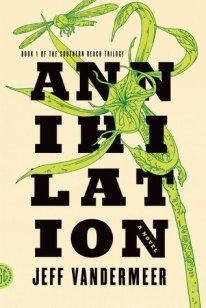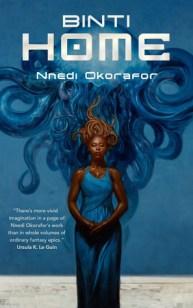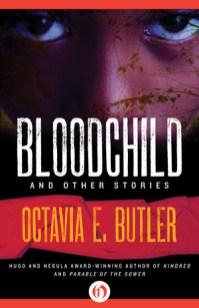


This summer I’ve been reading a lot of great science fiction and fantasy. This batch is all science fiction, although I’m finding the distinction is somewhat blurred in a lot of what I read. I suppose that’s because I don’t read too much traditional science fiction (which I think of as relying on technological and scientific developments rather than supernatural ones), nor do I read traditional epic fantasies. I like books that have elements of both.
Binti and Binti: Home by Nnedi Okorafor
I’m loving this series of novellas by Okorafor; the second one is even better than the first, and is over much too quickly. Now I’m waiting until next year for Binti: The Night Masquerade. In Binti, our main character is a young woman from the Himba community. She applies to study at the Oomza Academy, and though the Himbas disapprove, she’s determined to go. She’s a harmonizer who uses mathematics to create energy. I can’t really explain it but I like the idea. Unfortunately, her ship to her new school is hijacked by an alien race called the Meduse. I won’t tell you more than that.
Okorafor brings her own Nigerian background to this series, giving it a distinctly different feel from most science fiction. At the same time, those of you who like series that explore different cultures through science fiction (i.e. Star Trek) will appreciate these books. I’m not sure if these books are considered YA, but younger readers will definitely appreciate Binti’s efforts to follow her dreams but stay true to family and culture. While Binti is more of a stand-alone story than Binti: Home, the second part adds complexity, building on the challenges Binti experienced in the first book (for one thing, I always appreciate when an author recognizes that trauma doesn’t just go away immediately). I wished Binti: Home spent a little more time in the beginning reacquainting the reader with the concepts and vocabulary of the first book. I read these fairly close together (about six months apart) but Binti: Home was still hard to get into right away. But give it a little time and you won’t want to put it down.
Bloodchild and Other Stories by Octavia E. Butler
One of my favorite reads this year, Butler’s stories are powerful, creative, and vivid. Each one was fascinating. Unlike most books of short stories, there were no misses. Even better, the edition I read had an explanation by Butler of how she wrote each story, as well as two essays by Butler on the subject of writing. These added great depth to already-compelling short stories.
The title short story imagines a future where humans are enslaved by aliens and used to safely nurture and bear alien offspring like parasites. Human hosts are carefully chosen to fulfill this role. Unfortunately, the results can be ugly. Similarly, “Amnesty” explores a complex relationship between a dominant alien race and humans. For me the most interesting story was “Speech Sounds” about a post-apocalyptic future where a stroke-like illness has killed most people, and those who remain have lost the brain function they cherish most (for the narrator, it’s the ability to read and write). Civilization has broken down and everyone’s just trying to survive. A few stories weren’t really science fiction, but simply focused on family and relationships.
If, like me, you’re looking to read more by Butler, this is a great place to start. I’d only read Kindred, which is wonderful but very different (much more historical than science fiction). These stories pack a lot of punch in a small space and will keep you thinking long after you’ve read them. And if you’re interested in writing, Butler’s essays on the subject will definitely inspire.
Annihilation by Jeff VanderMeer
A biologist, an anthropologist, a surveyor, and a psychologist walk into Area X. So begins VanderMeer’s Southern Reach trilogy. I’ve heard a ton of hype about these books, and I’m not sure this book met my expectations, but it’s eerie and strange and I’m definitely intrigued. Told in a journal format by the team’s biologist, this account tells the story of the latest expedition team into Area X. Their mission is simply to explore and report back, although that’s proven to be difficult for the teams that came before them. Annihilation is unusual because of how much it doesn’t tell the reader. Where are we, and in what time? Where is Area X? Who’s running the government? We don’t even have names for any of the characters. But as our narrator notes from the very beginning, she’s not sure anything is the truth anymore. It’s clear she knows more – consciously or subconsciously – than she’s telling us.
It’s definitely an interesting story, and a clever use of the uninformed (or dishonest?) narrator with a gradual unfolding of details (many of which will need to be explained in the next book). In some ways, this book felt a little like a video game, with its narrator exploring different locations and gathering new information. It’s a quick read, but its downsides are a lack of character development and a story that’s more confusing than anything else. I had a hard time getting to know the narrator; for the first part of the book she is not only nameless but personality-less. Still, these are short reads, and since I want to know what happens next, I’ll give Book 2 a go.
All three of these books were on my 20 Books of Summer List, which puts me at 9 read, and 8 reviewed. Have you read any of these? What science fiction or fantasy novel have you read lately?

